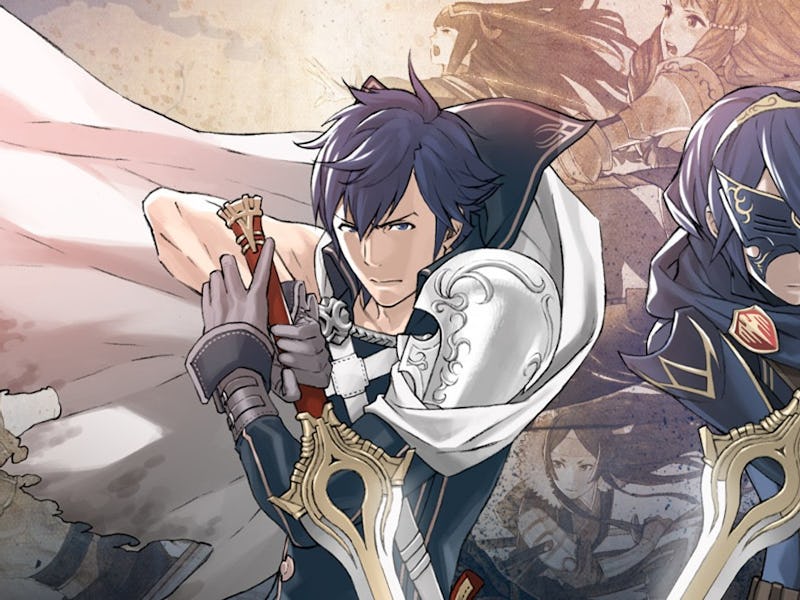Fire Emblem Awakening Is the Most Important 3DS Game Ever
A revolutionary release.

Tactical RPGs are in the middle of a massive renaissance right now. But a decade ago, the genre was in dire straits. That is, until the release of one seismically impactful Nintendo game. Fire Emblem Awakening debuted in February 2012 on Nintendo 3DS in the West, and the astoundingly ambitious handheld title completely renewed interest in both the Fire Emblem franchise and strategy RPGs at large.
Nintendo gave Intelligent Systems an ultimatum with Awakening — it would be the last Fire Emblem game if it didn’t sell well. Because of that, the developer put everything it had into the game, bringing back mechanics and systems from across the series. There are a lot of fascinating elements to Awakening, but looking back all these years later there’s one key feature that stands out more than any other —Support Conversations.
Awakening’s crowning success is its writing, which manages to make each character feel relevant long after their recruitment.
The Support has been in the Fire Emblem series, in some form, all the way since Mystery of the Emblem in 1994. However, that system usually focused on providing stat boosts to characters that fight near each other as well as a few quick lines of extra dialogue. The system was a little more complex in Genealogy of the Holy Wår, which introduced a “Love Points” system, but again this system was primarily used mechanically, not narratively.
Awakening was the first game to switch that idea, transforming the support system to revolve around storytelling and narrative, with gameplay bonuses coming in second. Each character had a handful of Supports they could build, and each had ranks that went from C up to S, which would result in a romance between certain characters.
There’s a staggering amount of writing that went into the support system, and they do a fantastic job of providing world-building, character backstory, and heaps of humor. There are some genuinely hilarious moments packed into a lot of these conversations, like Frederic trying to inspire the troops by posting naked posters of Chrom around camp, or the thief Gaius getting mad that Miriel spoils his card tricks.
These conversations do a phenomenal job of fleshing out each character, easily getting you invested in the units as you pick out your favorite, as well as the relationships you build between them. Another layer is added to this with the “Child units” you can recruit, as depending on who their parents are their look can change, and additional supports will be unlocked.
Support Conversations really lean into the unique personalities of each character.
This system also makes your characters feel more relevant as the game progresses, as you’re still learning more about them, rather than just recruiting a character and never really seeing them develop in any meaningful ways. What this means is that the stakes during battle are suddenly astronomically higher, as if you lose a character you aren’t just losing a useful unit, but perhaps your favorite part of Awakening’s story as well.
The key that makes everything about the Support system work so well is how incredibly easy it is to build these relationships. Just like in past games, you can build Support by having units fight next to each other, but the real revelation is the Dual System, which lets you combine two units into one. This makes them a stronger single unit, but also ensures that you’re building support for every single action taken while the duo is paired. Combine this with the fact that you can play infinite Skirmish battles, and there’s literally no Support that you won’t be able to get in Awakening if you really want to.
That ease of access is what’s really important, and Awakening as a whole made the franchise so much more accessible to anyone not familiar with tactical RPGs. That focus on characters and storytelling made Awawkening appeal to a more mainstream crowd, and it’s ultimately what catapulted the franchise to such massive success.
Fire Emblem has only continued to double down on characters and relationships, and it even became a focal point of the experience with Three Houses, which features more robust social simulation and dating mechanics. Putting the focal point on characters instead of gameplay was clearly the right decision to make, as it’s transformed Fire Emblem from a niche series to one of Nintendo’s headliners.
This article was originally published on